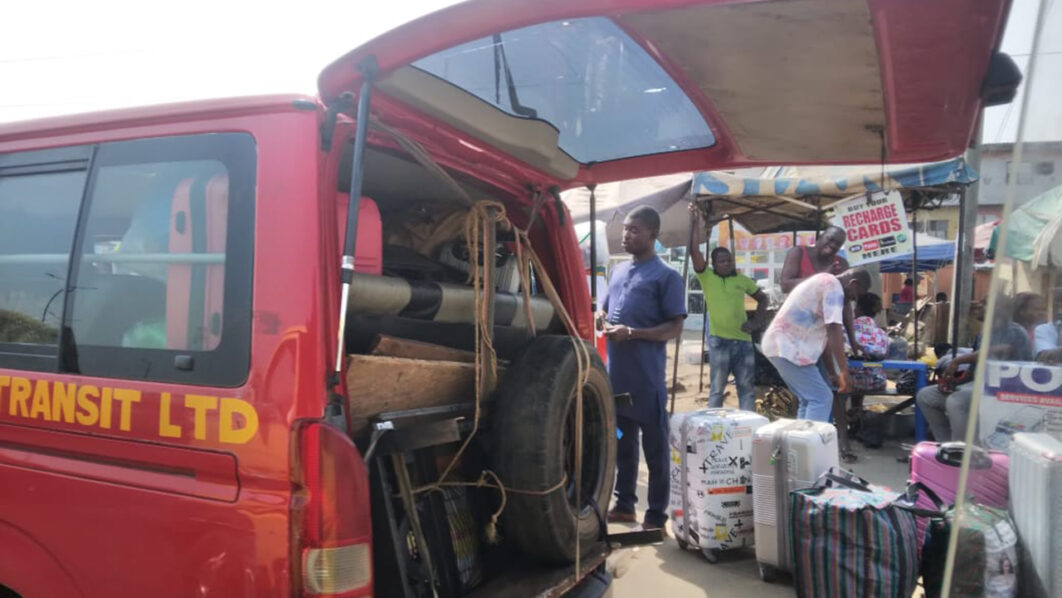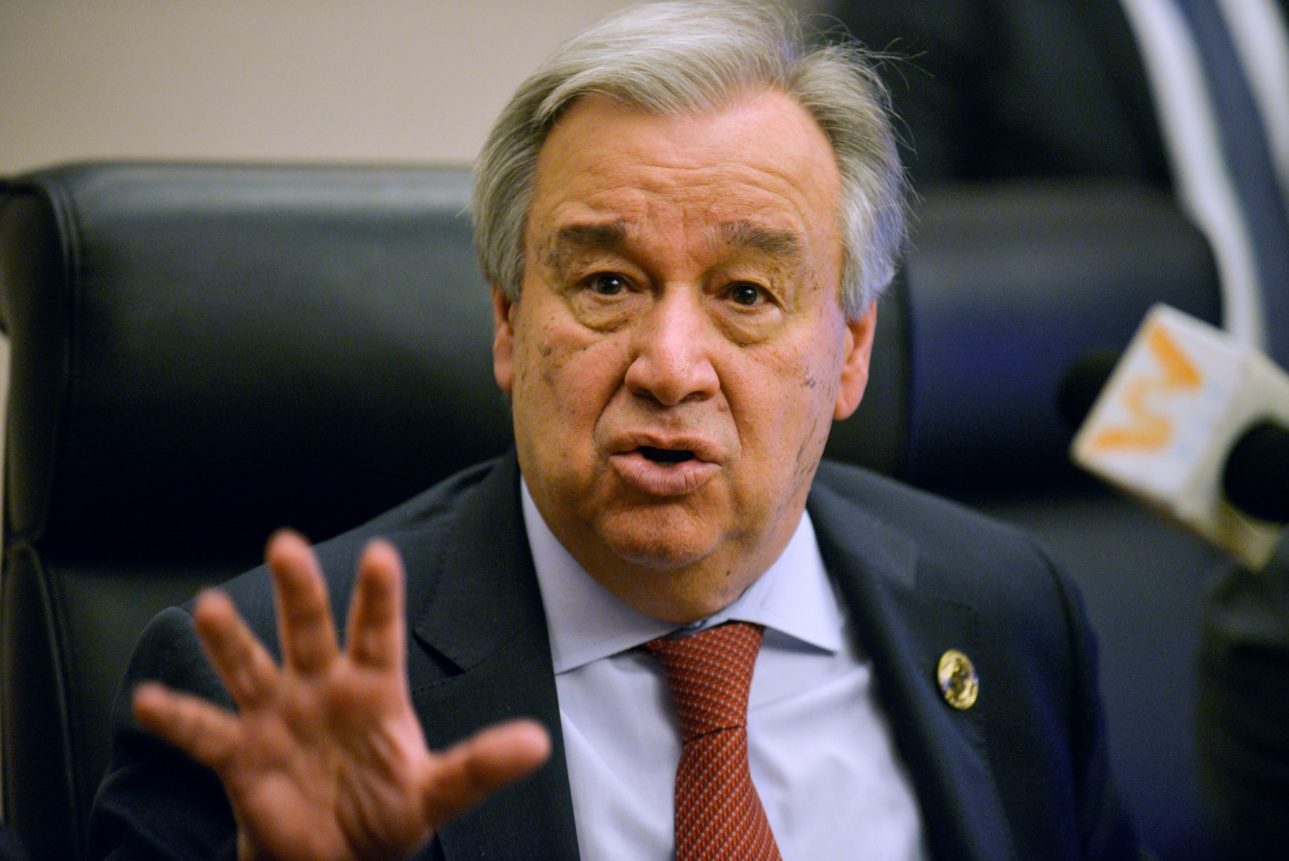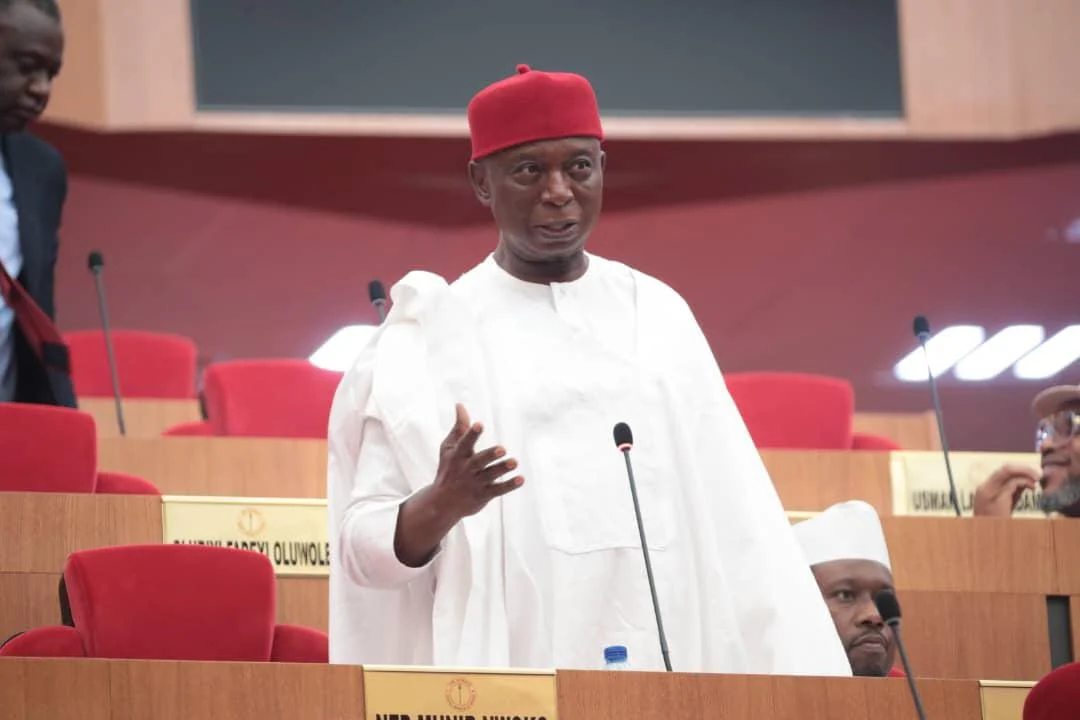
Barely days to Christmas, the 2024 edition promises to be an unusual festival in many Nigerian homes. The present economic realities have subdued this season’s spirit’, with a cash crunch dotting the landscape. With the inflation rate rising to 34.6 per cent from 33.8 per cent in October and the rising prices of fares and food items, many Nigerians are in for one of the most colourless Christmas in decades. JOSEPH ONYEKWERE, BRIDGET CHIEDU ONOCHIE, LAWRENCE NJOKU, BERTRAM NWANNEKANMA, ANN GODWIN, OBINNA NWAOKU, JULIUS OSAHON, MONDAY OSAYANDE and SOMTOCHUKWU OKORO report that many citizens, who do not have the resources or the alternative means of animating this season, may shelve their travelling plans and celebrate in stoic resignation, notwithstanding government’s subsidy via train rides.
Nnamdi Azu, a trader at Oyingbo Market, Lagos, is worried. His plan to travel with his family this season seems unrealistic, considering the resources available. The family of six belongs to the ritual of travelling to Lodu Imenyi in Bende Local Council of Abia State for the Christmas celebration. But the ritual may have become a taboo.
He had just realised that the cost of moving his family to Abia State and the soaring food inflation was quite exorbitant. His inquiry at the Okota Isolo bus terminal showed that the price of a bus ticket from Lagos to Umuahia, the Abia State capital, is between N36,000 and N40,000.
For six people, a one-way trip will amount to between N216,000 and N240,000. That is outside the inter-city transportation cost. This was against the N16,000 fare charged for the same route in 2023 before the removal of the fuel subsidy.
Unfortunately, Azu has not travelled home lately. Worst still, Azu had also planned to use the opportunity to participate in the final burial rites of his uncle, the late Elder Azunnaya Ihesie, who passed on Monday, May 6, 2024, at the age of 104. The ceremony is slated for December 26 – 27, 2024, at Akaelu Lodu, Imenyi.
Aside from the fare, Azu is supposed to buy other essential food items such as rice, groundnut oil, tomatoes, and more, which have increased by more than 100 per cent over the last one year. For example, a bag of rice, a staple during festive periods, now sells for an average of N107,000, up from N30,000 in 2023.
The price of a five-litre groundnut oil, which sold for N6,000 a year ago, now sells for N19,000. Similarly, the cost of cooking gas has doubled over the past year in some regions, making it difficult for families to prepare traditional holiday meals conveniently.
Mr Azu is not alone in this ordeal. A motor spare parts dealer in Ladipo Market, Isolo, Lagos, Mr Godfrey Maduka, said his family would stay in Lagos this Christmas instead of travelling to their hometown in Ekwulobia, Anambra State, due to financial constraints.
“The most important thing is to provide the basic family needs instead of embarking on this expensive holiday,” he consoled himself. According to him, his primary focus is to ensure that his family is provided with food where they reside.
Also, Adebayo Ojo, a trader in the Alaba market, is unhappy with the same situation. He has just put off his travel plan. “It used to cost me about N6,000 to travel from Lagos to Benin City during Christmas. Now, transport companies are asking for N18,000. How do they expect ordinary Nigerians like me to afford this?” Ojo lamented.
From bustling motor parks in Lagos to small roadside transport hubs in satellite towns, the story is the same – long queues of disgruntled passengers and the atmosphere of despondency. This year, transportation costs, which typically increase during Christmas periods, have doubled and sometimes tripled. This increase followed the removal of fuel subsidy last year, coupled with the devaluation of the naira and the rising inflation.

Transportation costs balloon across routes
FINDINGS by The Guardian showed that fare tickets for various routes in Nigeria have increased dramatically since the removal of the fuel subsidy but have worsened this season. For example, the price of a bus ticket from Lagos to Aba has increased from N15,500 in 2023 to N36,000 in 2024.
Similarly, the price of a bus ticket from Lagos to Abuja has increased from N16,000 in 2023 to N45,000 in 2024. Other routes have also seen significant upward adjustments, with Lagos to Enugu rising from N16,500 to N33,000, while Lagos to Owerri rose from N15,000 to N38,000. From Lagos to Benin, it increased from N15,000 to N34,500.
This worrisome development has raised concerns about the impact of transportation costs on the livelihoods of Nigerians, particularly the most vulnerable members of the society. Even luxury buses, once considered affordable alternatives, have become unaffordable for many. A ticket from Lagos to Abuja now costs between N25,000 and N30,000, compared to N10,000 last December.
A comparison of prices by GUO Motors between 2023 and 2024 revealed a staggering increment. For instance, a trip from Lagos to Abuja, which cost N16,000 in 2023, now costs N45,000, representing 181.25 per cent increment. Also, a journey from Lagos to Enugu, which cost N16,500 in 2023, is now N33,000, showing a 100 per cent rise. A trip from Lagos to Owerri, N15,000 in 2023, now stands at N38,000, representing a 153.33 per cent hike.
At the Ojota motor park, Lagos, the atmosphere was frenetic as passengers frantically negotiated with drivers, hoping to secure seats at reduced rates, which is becoming almost impossible. The frills of the season have been exchanged with frustrations and despair.
“I came here with my wife and three kids. We planned to travel to Delta State for Christmas, but when I calculated the total fare for my family, it was over N100,000. That’s my entire December salary!” Efe Ogidi, a schoolteacher based in Lagos, lamented.
Earlier in the month, the federal government announced two weeks of free train rides across the country for Nigerians travelling to celebrate Christmas with their families.
Addressing state house correspondents after the Federal Executive Council (FEC) meeting, Mohammed Idris, minister of information and national orientation, said the free rides will commence on December 20. Idris said the initiative aims to cushion the impact of transportation costs, particularly for vulnerable Nigerians.
“As we did last year, there will be free train service to all Nigerians from December 20 up until January 5, free train service nationwide,” Idris said.
“This is consistent with the President’s desire to cushion the effect of transportation, especially to the most vulnerable Nigerians.
“Recall that this also happened in the last Christmas period and the Sallah period. And the President has also approved that this year.”
In 2023, Tinubu approved a 50 per cent discount for inter-state road travel, and 100 per cent for train trips for Nigerians travelling to celebrate Christmas and New Year with their families.
Transporters defend the fare hike
TRANSPORT companies said they are also feeling the pinch. Many operators complained that the rising cost of vehicle maintenance and dwindling passenger numbers are threatening their businesses. “We are not making as much profit as people think. Sometimes, we must run half-empty buses because people can’t afford the fares. It’s a lose-lose situation,” Uchenna Nwafor, a manager at a popular transport company, said.
Some companies have introduced discounts for early bookings or offered instalment payment plans to mitigate these challenges. However, these measures are only scratching the surface of a much deeper issue. Justifying the rising cost of transportation fares, the General Manager of Libra Motors, Owerri, Mr Linus Sunday, told The Guardian that the removal of the fuel subsidy directly impacted the transportation sector.
“Previously, a litre of fuel was priced below N230, but it has since soared to over N1,000. This substantial increment has inevitably led to higher transportation costs. As Nigeria grapples with the fallout from the fuel subsidy removal, it is imperative to explore alternative solutions to mitigate the adverse effects on the transportation sector and the broader economy. Policymakers must consider strategies to alleviate the burden on citizens, such as targeted subsidies for vulnerable groups or investments in public transportation infrastructure,” Sunday advised.
A bus driver, Chijioke Anayo, shared similar sentiments. He attributed the hike to fuel subsidy removal. “The cost of petrol has gone up, and we are also paying more for spare parts and maintenance. This is not about greed; we are just trying to survive like everyone else,” he explained.
The return of night journeys
NIGHT journeys have not ceased to exist in Nigeria, but the economic hardship and hike in ticket prices across the country have revived the attraction for night journeys this season.
Many ‘obstinate’ travellers, bent on travelling, have seen it as the only alternative to reduce the high cost of travelling during the day. The risk associated with night travels pales at the thought of not getting home for these categories of persons. One such traveller is Romeo Felix. On December 17, he boarded Eddyson Motors luxury bus at Alaba in Lagos for N25,000 for a night journey to Aba.
“Our journey was smooth, and I got to Aba the following morning,” he enthused while speaking with The Guardian. Also, Mr Mark Nwogwugwu, who was bent on sending his children home for the festivities, said he paid N25,200 for each of his six family members with a Bonny Way Luxury bus at Oshodi for a night journey to Aba.
“I targeted Ezenwata Motors, but when I got to Oshodi bus terminal by 4.00 p.m., all their buses were fully boarded. I had no choice but to change to Bonny Way Motors, which was available then. We left by 5.00 p.m. and got to Aba early in the morning the following day,” he told The Guardian. By doing this, he saved for himself over N70,000.
Inflation worsens the woes of citizens
NIGERIA’S inflation rate has risen to 34.6 per cent in November — up from 33.8 per cent in October.This has deepened the misery among the ordinary citizens. According to the National Bureau of Statistics (NBS) in its Consumer Price Index (CPI) report for November, published some days ago, the rate represents an increase of 0.72 per cent compared to October.
Given the growing cost of living and stagnant income for working-class Nigerians, the World Bank had projected that the number of persons living in poverty would increase from 87.5 million in 2023 to 104 million in 2024, an addition of 17 million. This projection has happened with the country’s widening gap between the rich and poor.
This development is not without significant social implications. The festive season often boosts rural economies as visitors inject money into local businesses and markets.
A decline in Christmas travel may leave many of these communities grappling with reduced income during a time when they typically thrive. Additionally, lack of movement could dampen the season’s spirit, leaving many families scattered and unable to experience the warmth and joy of reunion.
Similarly, city traders are also feeling the pinch. At markets like Aspamda and Balogun in Lagos, vendors report low sales despite large crowds. According to a recent survey, live chicken prices have constantly increased from N10,000 in 2022 to N15,000 in 2023 and further to N22,000 in 2024. At the same time, the cost of a bag of beans has risen from N30,000 in 2022 to N90,000 in 2024.
The price of rice has also followed this trend, jumping from N40,000 in 2022 to N110,000 in 2024. Also, the prices of both vegetable and palm oils have surged. For example, a five-litre bottle of vegetable oil has gone from N12,000 in 2022 to N30,000 in 2024. The price of a five-litre bottle of palm oil has increased from N19,000 in 2022 to N50,000 in 2024. Regardless of low patronage, these prices will rise in the coming days, owing to seasonal increments associated with festivities.

At the Isolo market in Lagos, Mr Marcel Okafor, a poultry farmer, explained that the price of chicken feed, a significant ingredient in poultry farming, has doubled in the past year. A 25kg bag of feed that used to cost N15,000 in 2023, he said, is now N25,000.
“This sharp increase is why the price of live chicken has increased so much,” he said. He emphasised that the rise in feed prices, compounded by higher transport costs, has made it increasingly difficult for small-scale poultry farmers to maintain their businesses.
A seller at Balogun market in Lagos, Mrs Abimbola Aina, also lamented that things are very costly and that there is insufficient money in circulation.
“When there is money, people come to patronise us, but now we idle away. In the past years, markets would be bustling with shoppers hunting for festive bargains, but in 2024, the mood is sombre. Soaring inflation has drained the holiday spirit,” she said.
Travel plans in jeopardy at Enugu
MR Dennis Chukwudi, a wielder and father of three, hails from Ngor Okpala in Imo. The last time he travelled to his village was in December 2022. He could not travel last year because he could not raise enough money to cater for his family’s needs and pay the transport fare to his village.
Chukwudi’s plans of spending the holiday in his community with members of his family this year are about to hit the rocks following the soaring costs of transportation. He told The Guardian at his workshop on Edinburgh Road in Enugu that to move his family to his home, he would spend twice what it was last year.
“It is not easy for me at all. I have school fees to pay in January. My house rent will elapse by December 31. There’s the aspect of feeding the family. You must ensure that these things are considered before embarking on any Christmas journey,” he said.
Like Chukwudi, Mrs Joy Obioha, a trader in assorted foodstuffs, said she had cancelled travelling this December due to rising costs of transportation. “If I must travel to Ntigha in Isiala Ngwa, the local government of Abia state, this December, I should be prepared to spend twice what I spent last year on transportation. Unfortunately, the money is not there, and I cannot kill myself over it,” she stated.
Soaring transportation costs across states in the southeast are discouraging some residents from travelling to their home states for the Yuletide festivities. Inquiries by The Guardian across the southeast region indicated a rise in the fares since Sunday, December 15. This is despite the marginal reduction in the price of petrol.
For instance, the fare from Enugu to Umuahia, which was N4,500, has been increased to N5,000. The fare from Enugu to Onitsha increased from N6,200 to N6,800, while that of Enugu to Abakaliki is now N4,000, among others.
A commercial bus driver at Gariki Park in Enugu, Kelechi Nwagwu, told The Guardian that a “bad economy is responsible for the upward adjustment in the fare costs.” He, however, lamented low patronage arising from the inability of many to travel to celebrate with members of their families.
Meanwhile, no state government in the region has been able to approve free transport services for those travelling for Christmas as they usually do. Governors in the area had previously provided free transport services as part of their Christmas packages to the indigenes who wanted to return home.
Residents, motorists groan in South-South
THE agony of residents of the South-South region is palpable. They are decrying the sad development of high transportation costs, describing it as unbearable.
The Guardian discovered that the transport fares have increased by almost 100 per cent compared to last year after visiting Abali, Choba, Rumokoro and Waterline Parks in Port Harcourt and Obio-Akpor Local Government Areas of Rivers State.
For instance, a trip from Abali Park to Bori, the headquarters of the Rivers South-East Senatorial District, which includes Khana, Gokana, Tai, Eleme, Oyigbo, Andoni, and Opobo-Nkoro Local Government Areas, is now N4,000. The same journey was N700 last year.
At Rumokoro Park, a trip to Owerri, Imo State, between N2,000 and N2,500 is now between N5,500 and N6,000 depending on whether the passenger is boarding a bus or Sienna SUV. At Agofure Park in Waterline, a trip from Port Harcourt to Benin, which was N7,000 last year, is now N15,000.
All of these have a spiral effect on other commodities. For instance, a custard container of onions sold for 6,000 last month at the Fruit Garden Market located at D/line in Port Harcourt Local Council now sells for N12,000.
Reacting, the chairman of the National Union of Road Transport Workers (NURTW) Mile 1 chapter in Rivers State, Kingsley Akpan, described the situation as very terrible. Akpan said the union was compelled to increase its charges from N100 to N150 because of the current economic realities.
Okeoghene Peace, a young lady who had concluded her National Youth Service Corps (NYSC) in Rivers State, lamented how the situation had affected her plans to reside in Rivers State permanently.
In Bayelsa, a visit to the Ekeki, Tombia and Bob Izua parks revealed that the number of passengers at the parks has reduced, just as the number of vehicular trips has also reduced owing to low patronage.
A driver at Bob Izua, Kennedy Osasu, fingered transportation costs as the primary cause of low patronage. He said a trip to Benin City from Yenagoa is now N12,500, almost double last year, between N5000 and N7,500. He said they can barely board one full bus to Benin City because of the low patronage, and most passengers have resorted to staying where they are.
From Yenagoa to the eastern part, one of the most used routes, the route is not faring better. Most of the parks have more vehicles than passengers. In Tombia, a car can spend up to three days in the park without loading, especially in places like Owerri, Enugu, Onitsha, Awka, etc. A driver, known as Italo, confirmed that the volume of passengers had reduced significantly, adding that he would not even take his family to the village for Christmas because of the high fuel cost.
As a result of these challenges, some residents said they have resolved to stay where they are and spend the Christmas holiday. A civil servant, Mr Ebiowei Sanitation, said he had instructed his son not to come home for the Christmas holiday because the cost of transportation from Abuja to Yenagoa, which is about N90,000 to and fro, will be enough for his other siblings to enjoy the Christmas.
In Delta, transporters are capitalising on the high fuel cost to hike the transportation fare. Speaking with The Guardian, the Vice Chairman of the National Union of Road Transport Workers (NURTW) at Halmay Park, Asaba, Mr Tony Okonkwo, said the fare to various routes has to be commensurate with the prevailing economic situation in the country.
He, however, assured that his park won’t increase transportation fares this season. “How can you get patronage if you continue to raise prices? Some may shift base to other parks. So, we have to manage the situation to favour both sides.
“We know what people are passing through these days in our country. There is hardship in the land, and extorting passengers to enrich ourselves is not the solution,” he preached.
In Abuja, commuters decry extortions
MOST Nigerians in Abuja and other northern states defy the biting socio-economic situation as they travel in good numbers to unite with families and friends, especially those who can afford exorbitant transport fares.
As usual, motorists are capitalising on the demands to hike their fares to different parts of the country, particularly southern states. A visit to Kukuaba Motor Park in Kubwa revealed that commercial 18-seater buses have increased fares by over N10,000 to N15,000 per seat.
Journey to different states in the South East and South-South, which was initially between N20,000 and N25,000, now costs between N30,000 and N35,000, respectively. A trip from Abuja to Enugu State costs N35,000 a seat, Port Harcourt costs N40,000, Lagos costs N45,000, and Ilorin costs N25,000.
A driver to one of the commercial buses, Ugoamala, Chinedu Okoye, said the increased number of passengers propelled a hike in fares. “We are adding money due to demand. This has nothing to do with the cost of fuel. You can see there are more passengers than vehicles. If you don’t buy a ticket at least 24 hours ahead, you will not get a seat,” he said.
Mr Gbenga Michael, a motorist who goes to Ilorin, Kwara State, stated that though a journey from Abuja to Ilorin, N15,000, has been increased to N25,000, Nigerians are adapting to the situation. He, however, expressed worries over the decline in the number of passengers this season.
“Going to Ilorin is not as exciting as it used to be. Charging N25,000 from the initial N15,000 is shocking to so many people. So, we see more family representatives travelling this year than the entire family. Can you imagine a family of six traveling? The cost implications are huge. So, you find mostly the men travelling, leaving their family behind in Abuja,” he said.
Johnson Ibrahim, a passenger travelling to Jos, described the N25,000 fare as painful. He would have preferred travelling with his family but for the exorbitant fares. “I am going because I have something fundamental to do in the village. I have to resolve a pressing family issue; otherwise, I would have stayed back in Abuja,” he said. Ibrahim blamed the hike in transportation mainly on the seasonal demand. Another motorist, Chinedu Reuben, believes the exorbitant costs are a source of discouragement to would-be travellers.
Die-hard travellers defy cost
DESPITE the hike, some Nigerians said travelling at Yuletide is a yearly tradition that must be observed. Mr Ani Gabriel, who was travelling to Imo State, noted that his people are ready to defy high travel costs to unite with their families back home.
“We, the Igbos, don’t care about the cost of travelling during the Christmas season because it is a privilege for any Igbo man to travel to his father’s land. So, we don’t care how much it costs. I paid N40,000 now with my luggage, and I don’t mind, but as long as I am going to my village in Imo State, I don’t care.”
Also, Arinzechukwu Nnadi, who was travelling to Enugu State, shared a similar sentiment. According to him, it is necessary to travel because he hasn’t seen his parents in a long time. He, however, described the hike in fare as mere wickedness.
“Normally, they charged N12,000. Why hike it to over N30,000 when there was no recent increase in pump price? It is wickedness, but we can do nothing,” he declared.
As families weigh the cost of travelling against other pressing needs, governments’ intervention is crucial to ensure that the spirit of Christmas is not entirely lost. In the face of many adversities, Nigerians have demonstrated remarkable resilience and adaptability, hoping the New Year might bring relief and change to the deteriorating situations.






